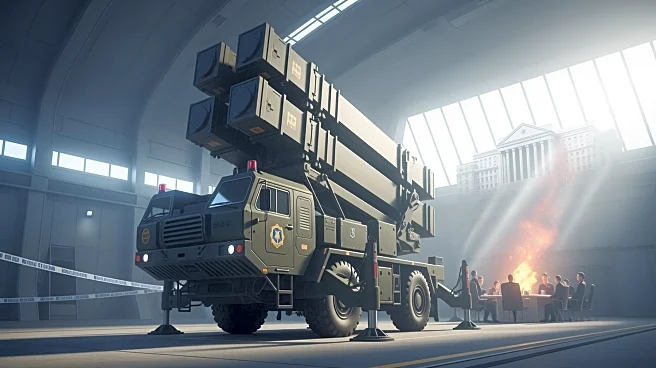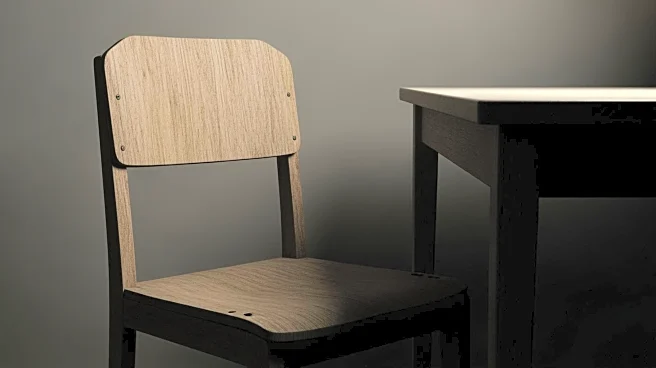What's Happening?
Avibras Indústria Aeroespacial, a Brazilian rocket and missile company, has filed a legal notice against SIATT – Engenharia, Indústria e Comércio, alleging unauthorized use of its intellectual property.
The allegations include the misuse of Avibras' brand, trade name, images, technical catalogues, and visual identity in commercial presentations and proposals. This legal action follows Avibras' recent change in controlling shareholder and the approval of its Judicial Reorganisation Plan. The company claims that SIATT has committed several acts of misconduct, including violations of intellectual property law, copyright law, and bidding law. Additionally, Avibras is challenging the Declaration of Exclusivity IDE 013/25, which was granted to SIATT by the Brazilian Association of Defence and Security Materials (ABIMDE), certifying SIATT as the sole company in Brazil capable of modernizing the ASTROS II system for launching anti-ship missiles.
Why It's Important?
The legal dispute between Avibras and SIATT has significant implications for Brazil's defense industry and national sovereignty. Avibras' allegations, if proven, could impact the credibility and operations of SIATT, a key player in Brazil's missile technology sector. The outcome of this case could influence future collaborations and contracts within the defense industry, potentially affecting Brazil's ability to maintain and advance its military capabilities. Furthermore, the case highlights the importance of protecting intellectual property rights in the defense sector, which is crucial for fostering innovation and maintaining competitive advantage. The resolution of this dispute could set a precedent for how intellectual property issues are handled in Brazil's defense industry.
What's Next?
The legal proceedings initiated by Avibras are expected to unfold in the 1st Civil Court of the District of São José dos Campos in São Paulo state. The court's decision on the validity of the Declaration of Exclusivity granted to SIATT will be pivotal. If the declaration is nullified, it could open opportunities for other companies to participate in the modernization of the ASTROS II system. The case may also prompt a review of how exclusivity declarations are granted and monitored by ABIMDE, potentially leading to stricter regulations and oversight in the future. Stakeholders in the defense industry will be closely monitoring the case for its implications on business practices and competitive dynamics.
Beyond the Headlines
This legal battle underscores the broader challenges of intellectual property protection in the defense sector, where technological advancements are critical to national security. The case may prompt a reevaluation of how intellectual property is managed and protected within the industry, potentially leading to stronger legal frameworks and enforcement mechanisms. Additionally, the dispute highlights the delicate balance between fostering innovation and ensuring fair competition, which is essential for the sustainable growth of the defense sector. The outcome of this case could influence international perceptions of Brazil's defense industry and its commitment to upholding intellectual property rights.









